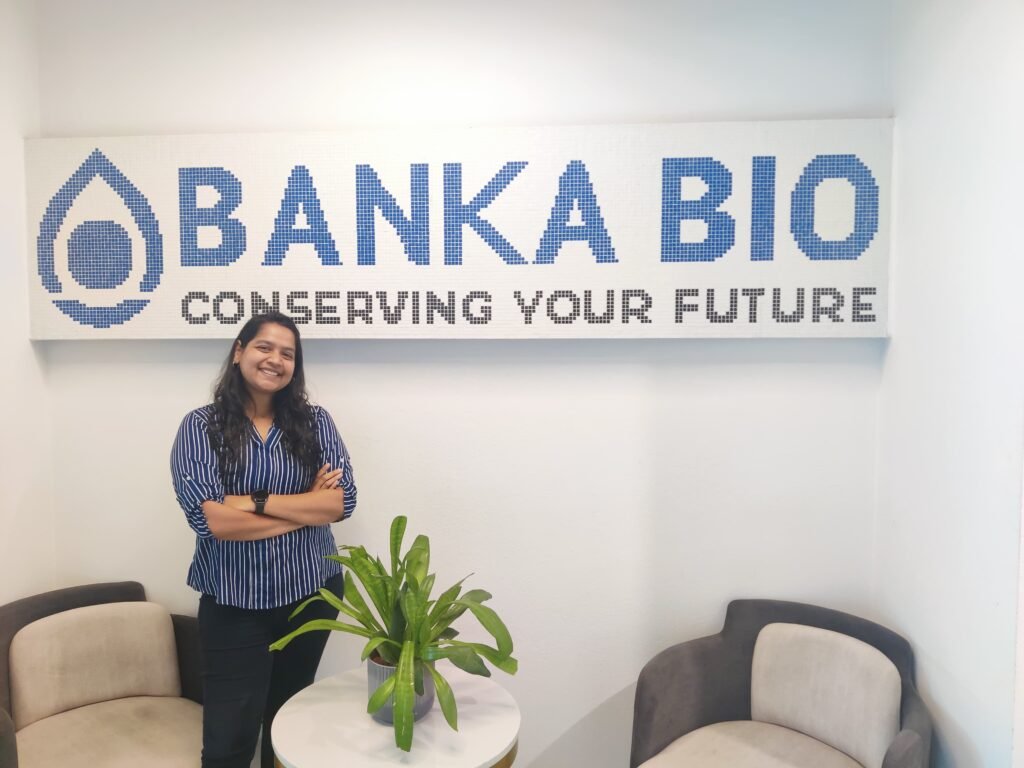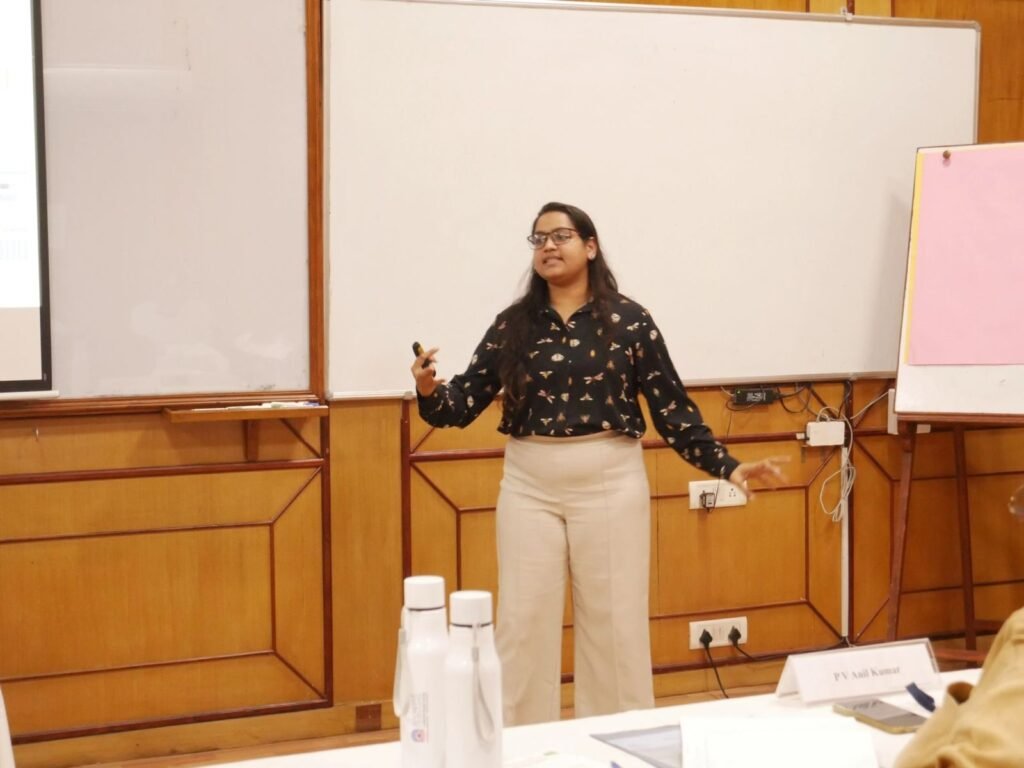In this exclusive interview, Smriti Banka on Sustainability shares her groundbreaking work at Banka Bio, where she serves as the Marketing and Sustainability Executive. With a career spanning social impact and strategic leadership, she is dedicated to driving meaningful change. From her advocacy for gender equity as a Girl Up leader to her innovative work in the WASH sector, Smriti is committed to creating change that lasts, proving that real impact happens on the ground.

We had the opportunity to speak with Smriti, whose journey reflects a heartfelt passion and strategic leadership, on how purpose can shape a career.
The Personal Path to Purpose: A Career of Dignity and Empathy
Q: Given your deep involvement with Banka Bio and its mission, how do you personally connect with the company’s vision of impacting lives through sustainable water and sanitation solutions?
Smriti’s path to purpose is deeply personal. Growing up with a “sustainable mindset” and “feminist thoughts,” she says her work in the social sector was an obvious choice. She explains that while many see WASH (Water, Sanitation, and Hygiene) as a surface-level issue, it is a matter of fundamental dignity.
“You know, term WASH is the world acronym for Water, Sanitation and Hygiene. And people think that, oh, it’s such a, you know, surface level conversation, but it’s really not,” she begins. “As a lady, especially we need the toilet while we’re traveling, while we’re on the go… because we deal with it on such a personal level. Every month as a lady, I menstruate. So it’s such a huge part of who I am even biologically.”
For Smriti, this personal connection drives her. She draws a parallel to the basic necessities of life, arguing that a toilet should be included in the traditional Indian saying of roti, kapda, makaan (food, clothing, shelter). Having personally witnessed the “open chute system” in trains during her childhood, she feels a deep connection to her work in bridging India’s sanitation gap.


The Battle for Mindsets: The Breakthrough in Behavioral Change
Q: What’s been the most significant challenge or rewarding breakthrough the company has experienced in ensuring sustainable management of water and sanitation ‘for all’?”
For Banka Bio, the most significant challenge has been shifting a deeply ingrained cultural mindset. “India is an inherently open defecating country,” Smriti states. She reveals that while India is officially open-defecation-free on paper, the reality is more complex. In rural areas, the company has found that newly built toilets are often locked up and used as storage spaces, considered a huge taboo. “It’s genuinely funny if you think about it, but also hysterical because it’s so sad,” she reflects.
The breakthrough, she explains, has been in managing this behavioral change. She points to the Bollywood film Toilet: Ek Prem Katha as a powerful example of this cultural shift. By building community toilets, Banka Bio has been able to respect traditional beliefs while providing safe, private sanitation spaces. It’s a rewarding victory that proves real progress happens not just with infrastructure, but by winning hearts and minds.

Pushing Possibilities: From Sanitation to Water Circularity
Q: Looking at Banka Bio’s focus on “pushing the possibilities beyond toilets,” what emerging WaSH challenges or innovations are you most passionate about tackling next?
With strides made in sanitation, Smriti’s passion has turned to India’s next looming crisis: water scarcity. The focus has shifted to wastewater treatment and “water circularity”, a process where used water is treated and reused. While municipal plants are often overwhelmed, new regulations are mandating that larger buildings, like business parks and housing complexes, install their own decentralized treatment systems.
“Our entire focus has now, or largely our focus has begun treating wastewater as well. Or rather I call it used water,” she shares.
Smriti cites an impressive example: one of their plants treats 20 lakh liters of water daily, enabling a building to reuse water for flushing, gardening, and HVAC systems. This single plant saves over 1.4 crore liters of fresh water a week. “It’s so much water that they have not used, that they’ve not wasted,” she says, emphasizing that water is “just chemistry.”
The Starfish Effect: A Career of Impact and Advice for Aspiring Activists
Q: How do your skills from your NGO work directly contribute to Banka Bio’s initiatives, and what advice would you offer to young leaders looking to make a similar mark in the social activism space?
Smriti’s background in NGO work and her leadership roles with organizations like Girl Up provided her with crucial soft skills she applies daily at Banka Bio. She learned the importance of active listening and empathetic communication, which allows her to understand what communities truly need. This experience has also given her a keen “gender vision,” helping her see how sanitation is a deeply rooted gendered issue.
When asked for advice, Smriti shares a story that has stuck with her for years: the parable of the starfish. In the story, a little girl throws one starfish at a time back into the ocean, despite being told she can’t save them all. Her reply? “I might not be able to save all the millions of fishes. But hey, look, I’m saving this one.”
This is the philosophy Smriti believes everyone needs to adopt. No effort is too small. Turning off the tap while brushing your teeth, refusing a plastic bottle in a restaurant, or carrying a tote bag. Every single one of these actions matters.
She also addresses a common misconception about the social sector: that you can’t earn money while doing good. “I understand that you need at the end of the day, you need money to run,” she stated. Banka Bio, she proudly explained, is a “for-profit social business,” not an NGO. This model allows them to create a sustainable impact that goes far beyond traditional charity. They currently employ over 1,100 people, providing livelihoods for 1,100 families. For Smriti, this proves that a career in social impact can be both professionally rewarding and deeply fulfilling.

Smriti believes that the climate and social industries in India are on the brink of a major boom, driven by the emergence of impact investing. Her final piece of advice is a powerful call to action for young people: “If you do it right, you can earn and do good. It doesn’t have to be exclusively, hey, either I earn the money or I do the good work. That’s not true.” Her words are a strong motivator for anyone considering a career that makes a difference
A reminder that personal and professional success can be achieved through a shared purpose.
Last Updated on: Monday, September 1, 2025 6:50 pm by Sonal Gramopadhye | Published by: Sonal Gramopadhye on Monday, September 1, 2025 6:50 pm | News Categories: News